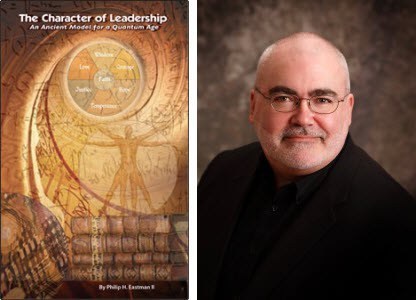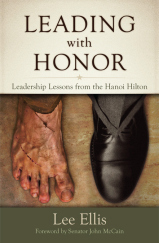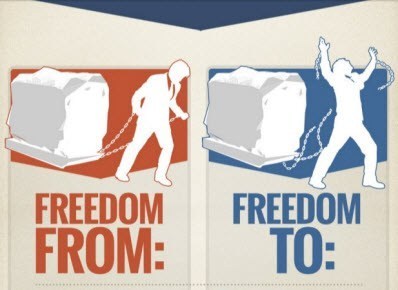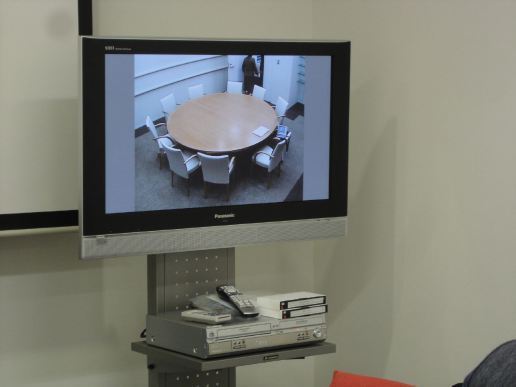Lee Ellis's Blog, page 337
March 24, 2014
The Latest Recommendation from Lee’s Bookshelf – “The Character of Leadership: An Ancient Model for a Quantum Age” by Phil Eastman
Per the book’s description, “The challenges we face today are not economic, environmental, social, or legal; they are challenges of character and leadership. This book introduces the ancient model of character and its elements of faith, justice, temperance, hope, wisdom, love, and courage.
As part of that model, the book articulates the leadership behaviors aligned with each element and argues that leaders must develop their character in order for their leadership to be effective.”
Learn more about this book – Click Here
And if you’ve read this book, please share your comments –
Related Articles:
Recommendation from Lee’s Bookshelf – “Exceeding Expectations: Reflections on Leadership”
Recommendation from Lee’s Bookshelf – “One of the Most Gripping Biographies Ever Published”


March 20, 2014
Expressing My Anger and Gratitude on Freedom and Leadership—What Do You Think?
(Editor’s Note: the San Antonio Express-News recently featured an OpEd article from Lee on his thoughts and reaction to his recent return trip to Vietnam. This was his first visit back to the region since his POW release over 40 years ago. Ironically, the same day that this OpEd was published, the other top headlines in this day’s edition focused on topics directly related to honorable leadership. Here’s a short list -
Attorney Admits to Bribing Judge
Man Gets Five years in Arson Plot
Former SA PD officer gets 18 months – took $500 in a drug case to look the other way.
Woman Gets Eight Years in Planning of Banking Heist
TV Pitchman gets 10 Years
Chris Brown sent back to Jail
General pleads guilty to lesser crime
CIA spying on senate? Never Right)
By Lee Ellis
Forty-one years ago on March 17th, I, along with many of my fellow soldiers, were finally released from the grips of the Communist Vietnamese. As the youngest of the POWs, I suppose I was fortunate that my imprisonment was only five and a half years. Many of my mates were there more than seven years, and Everett Alvarez was there for more than eight years.
Many former POWs have returned since their release to what is today simply called “Vietnam”, including my former campmate Senator John McCain. Even a sitting president, President Clinton, and a sitting Secretary of State, Hillary Clinton, have visited Vietnam, but this was my first trip back. I have no hard feelings toward the Vietnamese People, but going back to the scene of fear, pain and suffering was hard to comprehend. So it was with trepidation and uncertainty that my wife, Mary, and I planned a trip that would return us to the land that was my imprisoned home for so many years. Our trip was to be a more modest and likely more emotional trip than that of President and Secretary Clinton.
From the docking location of our fantastic Crystal Cruises’ ship to the modern day city of Hanoi was a bumpy, slow three-hour drive through the region…Read More from the original article, and your comments are welcome in this forum.


March 19, 2014
Optimism About America’s Future from a Next Generation Leader – Watch this Clip
We wanted to share this excellent new video clip from high school student, Madison, as she talks about the hope and optimism that she has for future generations about the life and freedom that we enjoy in America.
Out of thousands of participants in this video contest, she won $7000 and was honored in Washington D.C. for this work.
Americans and leaders–be encouraged about life and freedom today!


March 18, 2014
Why I Believe These 14 Leadership Principles Work – Watch the Clip
In this 60-second clip, Lee answers why the 14 principles in Leading with Honor work in life and leadership. If you face daily challenges that need wisdom, watch Lee’s answer.
The graphic below was used recently to promote honorable leadership, and these 14 principles are listed. Click the graphic to learn more, and please share your thoughts in this forum.


March 17, 2014
Leading with Honor—4 Ways to Have What It Takes
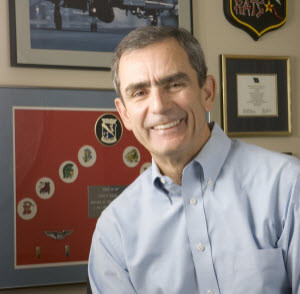 Are you alarmed by the frequency of ethical scandals in recent years? No doubt, you have seen the headlines about Wall Street greed, but ethical problems are just as prevalent on Main Street where bookkeepers, purchasing agents, and business owners violate the trust that others have placed in them.
Are you alarmed by the frequency of ethical scandals in recent years? No doubt, you have seen the headlines about Wall Street greed, but ethical problems are just as prevalent on Main Street where bookkeepers, purchasing agents, and business owners violate the trust that others have placed in them.
Think of the headlines in recent months: a highly respected coach resigned for covering up NCAA violations by his players; a Congressman is convicted of accepting bribes; a religious leader cheated on his wife, another is accused of using his authority to fleece the flock; teachers changed students’ responses on standardized tests and administrators collaborated in cover-up; a college inflated the average SAT score of their students to improve its image.
What is happening to our society? Does anyone care about honorable leadership? What can you do about it? What have others done that might guide those of us who seek to turn the tide in this onslaught against character-based leadership?
“It seems ironic that some of the best examples of leading with honor come from the POW camps of North Vietnam…”
It seems ironic that some of the best examples of leading with honor come from the POW camps of North Vietnam, an environment so life-threatening that one might expect to see frequent examples of self-centered, self-serving leadership. But when life and limb were on the line, these brave leaders chose honor rather than comfort, humiliation rather than cooperation with the enemy. Their courageous service can inspire and show us what is required to lead with honor, and I’ve shared my Vietnam POW story and 14 leadership lessons learned in my latest book, Leading with Honor: Leadership Lesson from the Hanoi Hilton.
Let’s look at a few of the lessons that I learned from these courageous leaders.
Know Yourself
The POWs leaders were experienced and strong yet they had no choice but to be humble. The enemy used torture and isolation to try to break their will and force them to cooperate in making propaganda. They were vulnerable, stripped to their core; they could not pose or pretend they were something they were not. Fortunately, they were solid—healthy people with a strong character that enabled them to lead with honor through the most unimaginable humiliation.
“If you don’t know yourself and have a peace about who you are, your fears and insecurities will take you out.”
Rather than pursuing your passion and purpose using your unique talents, style, and convictions, you will constantly be comparing yourself to others and trying to guide your life by someone else’s ways and standards. Alternatively, when you know and accept yourself, you can be authentic, leading from your own true north. Objectively knowing your strengths gives you confidence, while awareness of your weaknesses gives you humility.
Few will ever be POWs, but eventually we will all face situations that expose who we really are. Spend time with yourself and go deep. Accept who you are, but realize there is always room for growth; work every day to build yourself strong so you can lead authentically, from the inside out.
Clarify Your Values and Standards and Commit to Them
The POWs had a uniform code of conduct that everyone knew and was charged with following. It acted like signs along the road giving direction and providing a framework for decisions, choices, and behaviors, helping them stay on the right path even in the most difficult situations.
Unfortunately, most people have only generic assumptions and a superficial understanding about their moral values and ethical commitments. Jeb Magruder, White House advisor who went to jail, said that he had been taught right but somewhere along the way he “lost his ethical compass.” We are all cut from the same cloth as Magruder and without regularly clarifying our commitments, we will drift off course as well.
Confront Your Doubts and Fears
Fears and insecurities take out more leaders than anything else and they generally can be traced back to the first point above—your identity—knowing who you are and being comfortable with yourself. Even the smartest, toughest, and best leaders face insecurities and fears.
The POW leaders were tough warriors but they all struggled with fear. Commander Jim Stockdale endured frequent physical abuse and more than four years in solitary confinement, so naturally, there were fears, but he did his duty and suffered the consequences. Great leaders know that fear is the norm, and they know they must lean into the pain of their fears to do what they know is right.
“Courage does not mean that you are not afraid, but that you do what is right when it feels scary or unnatural.”
Connect with Your Support Team
In your struggle to lead with honor, you are like any other warrior—it’s not good to fight alone. That’s why the enemy tried so hard to isolate the POWs in North Vietnam and why the POWs risked everything to keep the communication lines open. Even the toughest POWs relied on the counsel and encouragement of their teammates. Authentic leaders realize they cannot see every situation objectively. On the tough choices, you will usually need the perspective of someone who is outside the issue to help you evaluate the situation. Build a network of a few key advisors who can help you navigate the treacherous waters ahead.
Final Thoughts
Our culture desperately needs men and women who will lead with honor. Don’t take it for granted that you will lead honorably. Engage in the battle required to guard your character. To be prepared, know yourself, clarify your values, standards, and commitments, confront your doubts and fears, and connect with your support team. Then you are ready to face the giants and avoid the headlines of failure.
LE
You can also watch my definition of honor in the brief video clip:
How did American military leaders in the brutal POW camps of North Vietnam inspire their followers for six, seven, and even eight years to remain committed to the mission, resist a cruel enemy, and return home with honor? What leadership principles engendered such extreme devotion, perseverance, and teamwork?
In this powerful, practical, award-winning book, Lee Ellis, a former Air Force pilot, candidly talks about his five and a half years of captivity and the fourteen key leadership principles behind this amazing story. His story has been featured on networks such as C-SPAN, CNN, ABC World News, and Fox News Network as well as hundreds of speaking engagements throughout the world. Learn more about Leading with Honor.


March 13, 2014
Leadership Development Training – A Testimony of Teaching Honorable Leadership
“I’m a Division Chief with local fire department which has 550 firefighters. I’m responsible for the hiring and training of these firefighters. I have just purchased Lee’s book and it’s outstanding. We are currently developing an Officer Candidate program in the department, and Leading with Honor will be a required read for these prospective company officers. One of the best books on leadership I have ever read.”
- Alan N., City Fire Department Division Chief/Training Supervisor
Leaders like Alan are using ‘Leading With Honor’ as part of his leadership development training in his work. Now, all leaders can go a step deeper into sharing these leadership lessons learned with the new Leading with Honor Group Training materials! Download a free sample of the first session at the link below –
www.FreedomStarMedia.com/Training


March 12, 2014
Improving the Big Rocks of Leadership – Motivation, Trust, Retention, and Change
In a recent survey, the top 4 challenges facing leaders today are:
Keeping employees motivated and focused on results.
Dealing with trust issues with their team.
Retention of high performers.
Leading effectively through change.
The successful solution to these challenges may surprise you. It starts with your personal leadership development. It is the most significant, authentic, and effective way to ensure the long-term success and vitality of your team and/or staff.
Download the free Leadership Freedom Checklist compiled by author and leadership consultant, Lee Ellis, as a way to evaluate where you are in your personal development.
Where are you on your leadership journey? What checklist items have been the most significant for you in the past or recently? Please share your comments.


March 10, 2014
Weigh the Pros and Cons Before Letting Millennials Work Remotely
As leaders, have you been trying to find the best method to build a remote team that works well from multiple locations? There are some important tips to consider—check out the article below and share your thoughts.
Click to read the article (you will be taken to another website).


March 5, 2014
A Former POW’s Return Visit to Vietnam – Follow My Story
A new collection of photos on our website share the highlights from Lee and his wife Mary’s trip to Asia as Lee returns on a speaking and visiting tour of the region. This is also his first return visit to Vietnam in over 40 years since his POW capture and release. The entire trip covered Hong Kong to Sinapore where he spoke and shared his story and message of honorable leadership.
On the day of their visit to the Hanoi Hilton, from the ship dock to Hanoi was a bumpy, slow 3.5 hour drive through the region. View the photos as Lee enters the Hanoi Hilton where he spent over 5 years in captivity.
Per Lee’s words that accompanied these photos, “Even with the positive memories of my fellow American comrades as well as the life lessons that I learned during those five years of captivity, I walked through Hoa Loa prison (“Hanoi Hilton” POW camp) 40 years later feeling very heavy and oppressed. Communist propaganda was displayed in the prison stating the great treatment that Americans received while they were. Grateful again for the freedoms that Americans enjoy.”
Next, their trip continues south to Saigon/Ho Chi Minh City, Vietnam.


March 4, 2014
Leadership Intuition: Learning To Listen To Your Gut
By Lee Ellis
Several years ago my strategic partner and good friend Hugh Massie, Founder and CEO of DNA Behavior® International, mentioned that he was learning to trust his gut instincts more. That caught my attention since he is a CPA by training and a very results-oriented, rational person.
Then as I read Malcolm Gladwell’s book, Blink, I learned about this idea of the “second mind,” as he called it. Gladwell raised the visibility of the power of intuition, but I suspect that it was only for a short time for most people.
Last summer at the National Speakers Association Convention, I met a leadership consultant who was building her speaking platform around the idea that leaders (who have mostly been trained like engineers to trust rationality and disregard feelings) needed to learn to use their intuition more to make better decisions.
Just recently I read another impressive book, THE WAY OF THE SEAL: Think Like an Elite Warrior to Lead and Succeed and was interested to see that author Mark Divine, a former CPA and Navy SEAL, made instinct (awareness of gut feelings) a major theme of the book. His proposition is that leaders should train like Navy SEALS to intentionally use both rational (conscious mind) and instinctive (drawing from the unconscious mind) inputs to make the best decisions.
Albert Einstein didn’t read Blink, and he certainly wasn’t a Navy SEAL, but evidently he discovered this related theory early on, saying,
“The intuitive mind is a sacred gift and the rational mind is a faithful servant. We have created a society that honors the servant and has forgotten the gift.”
I’m seeing a pattern from these different points on the topic of intuition, so let’s explore it a bit deeper.
So what is the gift?
Intuition is about listening to your subconscious mind (gut instincts) to pull forward information and feelings that you’ve accumulated over a lifetime. Warriors have to rely on instinct, using every possible sense from outside and every stirring from inside to stay alive. Having a good visual memory for shapes and landforms is crucial for a military pilot. Being able to store and recall patterns of logic and information is important for an entrepreneur or business person.
Emotional memory is probably the strongest memory that we have, and it’s also the one most quickly accessed. Emotional memory is the one we feel in our gut, and it helps us access the gigabytes of memory stored in our subconscious faster than any processor yet made.
“So, intuition is this stream of awareness that flows from our subconscious to our conscious, but it requires our tuning in to hear the signal.”
Can It Be Learned?
The short answer is yes, but the issue is whether you will develop your awareness and then allow intuition to move from your gut to your mind. It’s not a problem when data is tagged with emotions; it’s ready for quick retrieval and usually easy to access. At other times, it’s as simple as stopping to ask yourself, “What is my gut telling me about this—what is my intuition?”
Sometimes data needed for intuition needs help in getting to our awareness, and this situation is where we have to be more intentional about accessing it. It usually means taking time to shut down our rational thinking and reflect usually in a quiet setting away from distractions. Sounds a lot like meditation and prayer, doesn’t it? I believe it’s very similar and can be the same.
Reflecting, waiting, and listening with our feelings for insight is a practice used by wise people throughout the history of civilization, and in our increasingly fast-paced society it’s a lost art. If we ignore or fail to cultivate the intuitive half of our decision-making abilities, we become less than our best as leaders and merely rely on the facts at hand.
My Experience
I think that I’m a very logical and rational person, but I’ve also been blessed with a gift for patterns and a good memory. In recent years I’ve learned to value what these gifts reveal to me and trust my intuition more. I do have to be careful about not jumping to conclusions with too little rational information, but overall I’m feeling more confident in my decision-making and greater commitment to execution.
What about you? What has been your experience? How often do you integrate your intuition in your decision-making? Why do you believe that some leaders ignore or don’t develop their intuitive abilities when it would produce better results and greater success? Please share your thoughts and comments.
LE
Related Articles:
Adams and Jefferson Leadership Traits: Which One Was the Better Leader?
Leadership Psychology – Are Great Leaders Made or Born?



